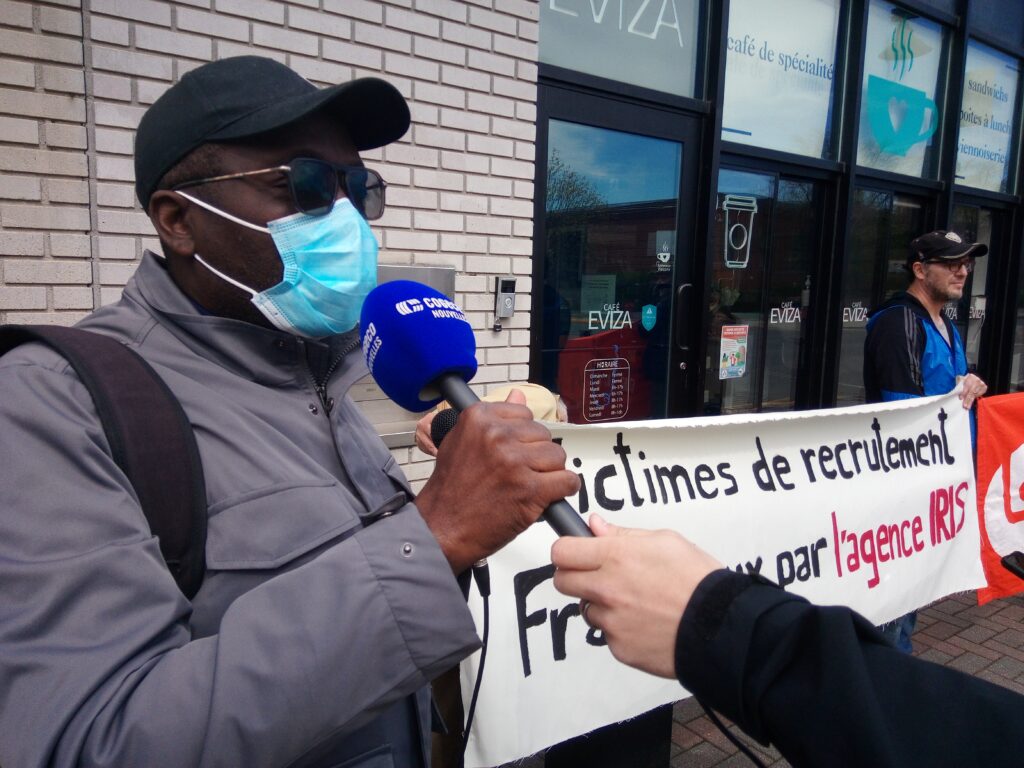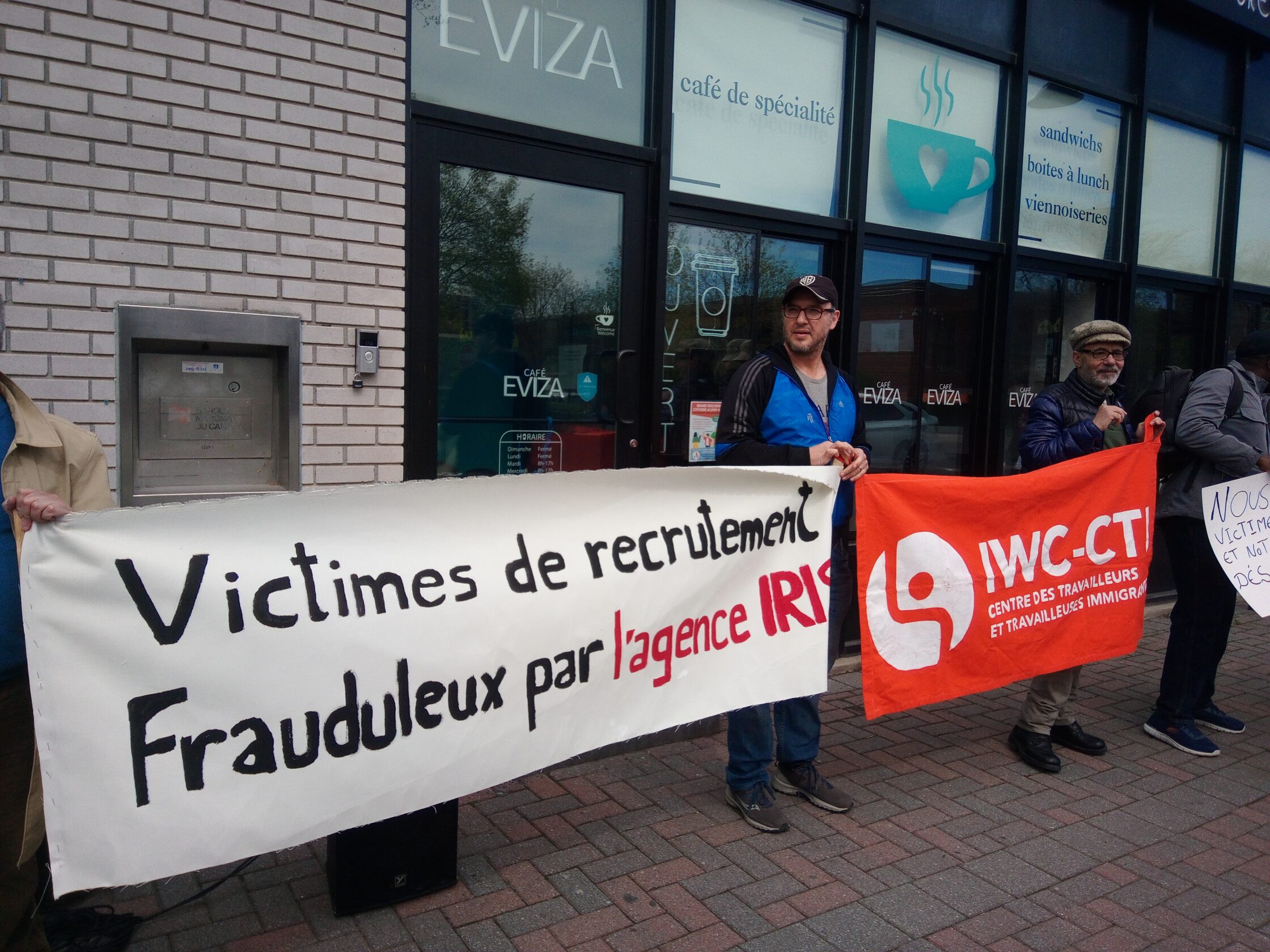On May 5, a group of workers demonstrated outside the offices of the IRIS employment agency in Lasalle. They are claiming $100,000 in unpaid wages and are still waiting for their tax statements. Nineteen of them have filed a complaint with the CNESST and requested government assistance. But the process is dragging on, and many risk being deported before a solution is found.
Patrick Lobé is one such worker. The recruitment agency’s abuses began as soon as he was hired, when it demanded $1,500 to employ him. “They didn’t tell me what it was for. Was it for consultant fees, or lawyer fees? But I know I paid that amount. And the head of the IRIS agency never bothered to give me a receipt.”
Lobé subsequently obtained a closed work permit as a production machine operator. However, the agency sent him to work as an orderly. He then signed a contract at the residence where he works.
“I expected them to give me a copy, but they never gave me a copy of the contract until today. And every time they pay us, we don’t get a pay stub. We don’t know on what basis they calculate the salary, the legal deductions to Revenu Québec or any federal agencies.”
Lobé denounces the fact that he and several of his colleagues have not been paid for weeks or even months. He also criticizes the agency for failing to pay overtime, statutory holidays and vacation pay.
This situation threatens the workers’ immigration status. “The agency through which we were issued the closed work permits, as the months went by until the end of the permit, was supposed to give us advice. Telling us there’s five months left, four months, here’s what we can do, here’s what we have to do, and we fell like that,” reports Lobé.

Another agency worker, who asked to remain anonymous, spoke out against the psychological abuse she had suffered. She explained that requests to their employer remained unanswered and that some of her colleagues had considered suicide.
She added that the process of seeking justice from the government is particularly trying and difficult, even though the government recognizes the wrongs committed by the agency and has suspended its license.
She recounts her ordeal: “The government does recognize that there have been abuses. But the procedures are so long that we’re wondering when we’ll be able to get what we’re owed. The claims haven’t come out yet; we’re still waiting for them. Then the case goes to court. What are the deadlines? What’s more, we’re told that we may have to file new claims. Are we going to have to go through this process every time?”
“In the meantime, time passes, we find ourselves without status. We’re lost. There’s the option of an open permit for vulnerable people, which we get. But it’s only for a year. For me, that’s precariousness. They’re opening the door for us to go back to prison, if I can put it that way, on a closed permit again. But we’re not even sure we’ll get it.”
Closed work permits have been described by the UN as conducive to slavery. These permits bind a worker’s immigration status to his or her employer. If the contract is broken, the worker is left without status.
Laura Doyle Péan, from the Immigrant Workers Centre Legal Clinic, explained the danger these permits represent for workers:
“The power differential situation this creates between employers and employees makes no sense and encourages, precisely, abuses such as not paying wages, not giving documents. Employers know that workers don’t get the short end of the stick, and that denouncing these abuses also puts them in a precarious situation. So they take advantage of it and abuse it.”


Be part of the conversation!
Only subscribers can comment. Subscribe to The North Star to join the conversation under our articles with our journalists and fellow community members. If you’re already subscribed, log in.